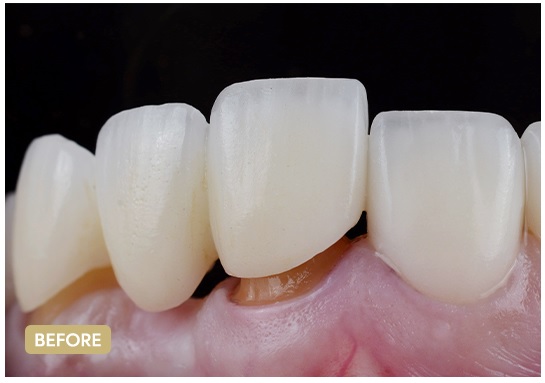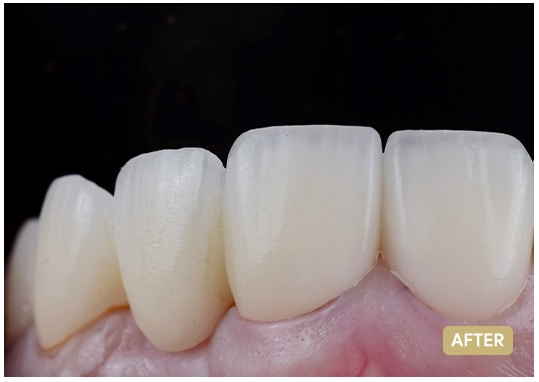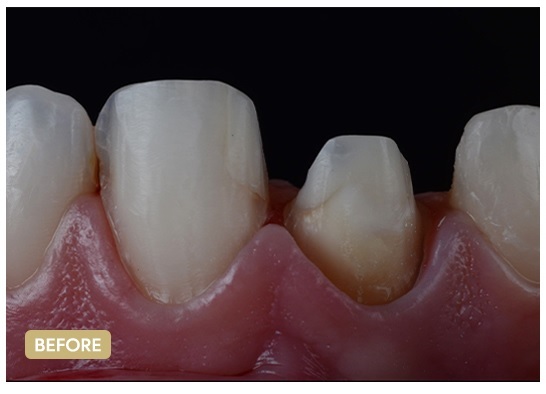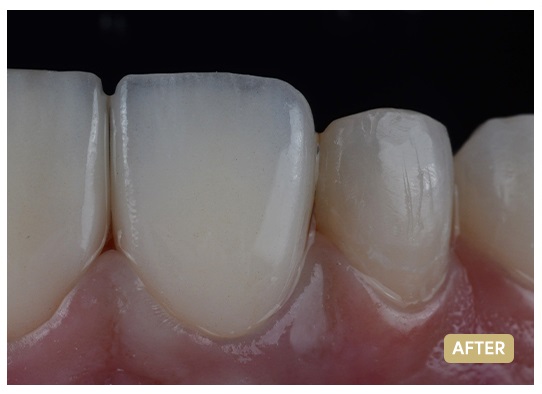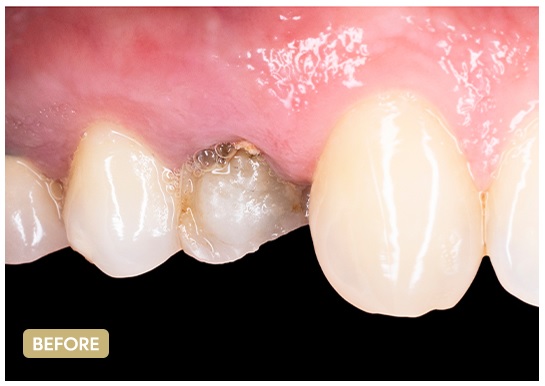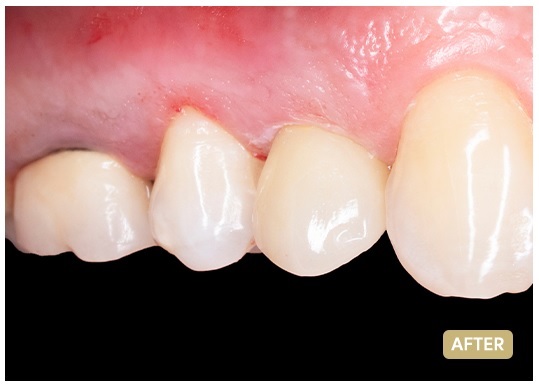What Are Dental Crowns and Bridges?
Dental crowns and bridges are essential restorative solutions designed to repair damaged teeth and replace missing ones, restoring both function and aesthetics. A dental crown is a custom-made cap placed over a weakened, fractured, or severely decayed tooth to enhance its strength, shape, and appearance. Crowns are commonly made from porcelain, ceramic, metal, or a combination of materials, ensuring durability and a natural look. On the other hand, a dental bridge is used to replace one or more missing teeth by anchoring an artificial tooth to adjacent natural teeth or dental implants. Bridges help maintain facial structure, restore proper chewing ability, and prevent neighboring teeth from shifting out of place. Whether you need to strengthen a damaged tooth or replace missing teeth, crowns and bridges provide a long-lasting, aesthetically pleasing solution to keep your smile healthy and complete.
Types of Dental Crowns and Bridges
There are various types of dental crowns and bridges, each designed to restore function and aesthetics based on individual needs.
Types of dental crowns
- Porcelain crowns : Blend seamlessly with natural teeth for a natural look.
- Ceramic crowns : Ideal for front teeth due to their aesthetic appeal.
- Metal crowns : Extremely durable, often used for molars.
- Porcelain-fused-to-metal (PFM) crowns : Offer both strength and a natural appearance.
- Zirconia crowns : Highly durable and resistant to chipping or cracking.
Types of dental bridges
- Traditional dental bridges :Supported by crowns placed on adjacent natural teeth.
- Cantilever bridges : Require only one supporting tooth, used in specific cases.
- Maryland bridges : Bonded with a metal or porcelain framework for a more conservative approach.
- Implant-supported bridges : Also known as dental bridge implants, these are anchored to dental implants for maximum stability and longevity.
Each type of crown and bridge is custom-designed to match your smile, ensuring durability, comfort, and a natural appearance.
Benefits of Dental Crowns and Bridges
Dental crowns and bridges offer several advantages for individuals looking to restore their smile and improve oral health. These restorative dental solutions provide both functional and aesthetic benefits, making them a popular choice for patients with damaged or missing teeth.
1. Restores tooth functionality: Crowns and bridges help restore the ability to chew and speak properly by replacing or reinforcing damaged teeth. They allow individuals to enjoy a normal diet without discomfort or difficulty.
2. Enhances aesthetic appearance: By covering damaged or missing teeth, crowns and bridges improve the overall appearance of the smile. They are designed to match the natural tooth color, ensuring a seamless and attractive look.
3. Provides long-lasting durability: Made from strong materials such as porcelain, ceramic, or metal, dental crowns and bridges are highly durable and can last for many years with proper care.
4. Prevents teeth shifting: A dental bridge fills the gap left by missing teeth, preventing surrounding teeth from shifting out of place. This helps maintain proper tooth alignment and bite stability.
5. Strengthens weak or damaged teeth: Crowns provide a protective layer over weakened or fractured teeth, preventing further damage and reducing the risk of tooth loss.
6. Improves oral health: By restoring damaged teeth and replacing missing ones, crowns and bridges contribute to overall oral hygiene, reducing the risk of gum disease and further complications.
Who Is a Suitable Candidate for Dental Crowns and Bridges?
If you’re considering dental crowns in Dubai, it’s essential to know whether you’re a suitable candidate. Dental crowns and bridges are ideal for individuals who need to restore damaged or missing teeth while improving both function and aesthetics. Here are the key factors that determine suitability:
1. Individuals with severely damaged or decayed teeth : If a tooth is weakened due to decay, fractures, or large fillings, a dental crown can provide strength and protection, preventing further damage.
2. Patients with missing teeth : Those with one or more missing teeth can benefit from dental bridges, which fill the gaps and restore a natural-looking smile.
3. People looking for long-term durability : Dental crowns and bridges are made from strong materials like porcelain or ceramic, making them a durable option for individuals seeking a long-lasting dental solution.
4. Individuals with worn-down teeth : Teeth that have been worn down due to grinding (bruxism) or acidic erosion can be restored with dental crowns to improve functionality and appearance.
5. Those with dental implants : If you have received a dental implant, a crown is needed to complete the restoration and provide a natural tooth-like appearance.
6. Patients looking to improve smile aesthetics : Dental crowns in Dubai are commonly used for cosmetic enhancements, helping to correct discolored, misshapen, or poorly aligned teeth.
7. Individuals with good oral hygiene : Candidates must maintain good oral hygiene to ensure the longevity of their crowns and bridges. Regular dental check-ups and proper care are essential.
If you’re considering dental crowns in Dubai, at The Clinic SKIN111, we offer a free consultation with highly qualified doctors to determine if they are the right option for you. With the right treatment, you can restore your smile and improve oral health effectively.
Dental Bridges vs. Traditional Dental Implants
When it comes to replacing missing teeth, dental bridges and traditional dental implants are two of the most common options. Both serve the same purpose restoring the functionality and appearance of your smile but they differ in several key aspects.
1. Procedure & placement
- Dental bridges: A dental bridge involves creating a prosthetic tooth that fills the gap left by a missing tooth. The bridge is supported by the teeth adjacent to the missing one. These neighboring teeth are typically filed down to accommodate the bridge.
- Traditional dental Implants: A dental implant is a titanium post surgically placed into the jawbone, serving as a root replacement for the missing tooth. Once the implant integrates with the bone , a crown is placed on top to complete the restoration.
2. Longevity
- Dental bridges: Typically, dental bridges last around 5-15 years, depending on care and materials used. The adjacent teeth may also be at risk of damage or decay over time, potentially requiring further treatments.
- Traditional dental implants: Dental implants are known for their durability and can last a lifetime with proper care. Since the implant fuses with the bone, it’s a more stable and permanent solution.
3. Functionality
- Dental bridges: Bridges restore the function of missing teeth, but the neighboring teeth may experience additional wear and tear over time. The bridge may not be as strong or stable as a natural tooth.
- Traditional dental implants: Implants function just like natural teeth. They’re securely anchored into the jaw, offering better strength and stability, which allows you to bite and chew with confidence.
4. Appearance
- Dental bridges: Bridges are designed to blend with your natural teeth, but since they rely on adjacent teeth for support, they may not look as seamless as implants in some cases.
- Traditional dental implants: Implants provide a more natural look because they are individually placed into the jawbone, mimicking the appearance and function of your original teeth.
5. Bone health
- Dental bridges: Since dental bridges don’t involve the jawbone, they do not stimulate bone growth. Over time, bone loss can occur in the area where the tooth is missing.
- Traditional dental implants: Implants help preserve bone health because they act as a tooth root, stimulating the bone and preventing bone loss. This can help maintain the natural structure of your face.
6. Cost
- Dental bridges: Generally, dental bridges are less expensive upfront compared to implants. However, they may need to be replaced or repaired sooner, leading to higher long-term costs.
- Traditional dental implants: While the initial cost of dental implants may be higher, they can be more cost-effective in the long run due to their durability and longevity.
Procedure for Getting a Dental Crown or Bridge
Initial consultation
- A dentist evaluates your teeth and gums to determine if a crown or bridge is the right option.
- X-rays or digital scans may be taken to assess the condition of the teeth and surrounding structures.
Tooth preparation
- For a crown, the damaged tooth is reshaped to create space for the crown to fit securely.
- For a bridge, the adjacent teeth (abutment teeth) are prepared by removing a portion of enamel to support the bridge.
Impression or digital scan
- An impression or a digital scan of the prepared tooth/teeth is taken to create a custom-made crown or bridge.
- The impression is sent to a dental lab for fabrication, which typically takes a few days.
Temporary crown or bridge placement
- While waiting for the permanent restoration, a temporary crown or bridge is placed to protect the teeth.
- Patients should avoid chewing hard or sticky foods to prevent damage to the temporary restoration.
Fitting and cementing the permanent restoration
- Once the custom crown or bridge is ready, the dentist removes the temporary restoration.
- The new crown or bridge is checked for fit, bite alignment, and aesthetics.
- After adjustments (if necessary), the dentist cements the crown or bridge securely in place.
Final adjustments and aftercare instructions
- The dentist ensures the restoration fits comfortably and provides guidance on proper care.
- Regular brushing, flossing, and dental check-ups are essential for maintaining the longevity of the crown or bridge.
Aftercare & Recovery Tips
Proper aftercare is crucial to ensure the longevity of your restoration and keep your smile healthy. Here are some essential recovery tips to follow after getting a dental crown Dubai:
1. Maintain good oral hygiene
- Brush your teeth at least twice a day using a soft-bristled toothbrush to avoid plaque buildup around your crown or bridge.
- Floss daily, carefully cleaning around the gum line and the edges of the crown or bridge to prevent gum disease and cavities.
2. Avoid hard or sticky foods : Stay away from hard and sticky foods that can damage, loosen, or dislodge your dental crown or restoration.
3. Prevent Teeth Grinding : If you grind your teeth at night, consider using a custom-made night guard to protect your crown or bridge from damage.
5. Regular Check-ups : Regular visits to your dentist are important for maintaining the integrity of your restoration. Schedule professional cleanings and check-ups every six months to ensure everything is in good condition
By following these aftercare tips, your dental crown or bridge will last longer and continue to function effectively, helping you maintain a beautiful, healthy smile
Dental Crowns and Bridges in Dubai
[Note: Elaborate on the treatment using location-based keywords and include few USPs]
The dental crown cost in Dubai ranges significantly depending on the clinic, materials used, and complexity of the procedure. At The Clinic SKIN111, we offer the best price guarantee for dental crowns, ensuring exceptional value for your investment in your smile. As the first dental care provider in DIFC, established in 2009, we are committed to delivering high-quality, personalized care. Our clinic provides a free doctor consultation, and our expert team of doctors brings over 40 years of combined experience in cosmetic dentistry. With state-of-the-art technology, we offer free 3D visualization using CBCT scans for accurate bone assessments, ensuring that all procedures are carried out with precision by skilled implantologists.
Dental Crowns and Bridges Before & After
FAQs About Dental Crowns and Bridges
-
How long do dental crowns and bridges last?
-
Are dental crowns and bridge procedures painful?
-
Can a dental bridge replace multiple teeth?
-
How long does it take to get a dental crown or bridge?
-
Can I eat normally with a dental crown or bridge?

